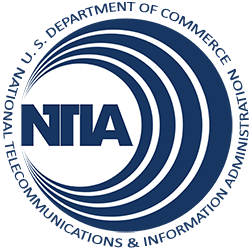The City of Charlotte’s CharMeck Connect project proposes to deploy an interoperable 700 MHz public safety wireless broadband network for the city as well as the greater Mecklenburg County area. The city proposes to provide speeds of 3 Mbps downlink and 1 Mbps uplink to all public safety agencies across multiple jurisdictions. The project plans to construct 24 new wireless towers to complement six existing towers on the network, and bring over 11,000 public safety users onto the system.
North Carolina

| Grantee | Total Award | Type |
|---|---|---|
| City of Charlotte | $16,702,490 | Infrastructure |
| Communication Service for the Deaf, Inc. | $14,988,657 | Sustainable Adoption |
| Fayetteville State University | $1,012,401 | Public Computer Centers |
| MCNC | $28,225,518 | Infrastructure |
| MCNC | $75,757,289 | Infrastructure |
| Mitchell County Historic Courthouse Foundation | $239,194 | Public Computer Centers |
| North Carolina Central University | $1,978,526 | Sustainable Adoption |
| North Carolina Department of Commerce (Transferred from Rural Economic Development Center, Inc. (e-NC Authority)) | $6,610,996 | Broadband Data & Development |
| Olive Hill Community Economic Development Corporation | $448,742 | Public Computer Centers |
| One Economy Corporation | $28,519,482 | Sustainable Adoption |
| University Corporation for Advanced Internet Development | $62,540,162 | Infrastructure |
| WinstonNet, Inc. | $926,537 | Public Computer Centers |
Broadband’s ability to expand educational and employment opportunities is especially meaningful for Americans who are deaf or hard of hearing, a community that faces unique challenges in education and that suffers from a rate of unemployment much higher than the national average. Communication Service for the Deaf, Inc. (CSD) intends to expand broadband adoption among people who are deaf and hard of hearing and provide them with online tools to more fully participate in the digital economy. The project proposes to employ a combination of discounted broadband service and specialized computers, technology training from an online state-of-the art support center customized to the community’s needs, public access to videophones at anchor institutions from coast to coast, and a nationwide outreach initiative. Thousands will gain online access to all the Internet has to offer, including sign language interpreters, captioned video services, and other content and functionalities designed especially to advance their educational, employment, and healthcare interests.
The Fayetteville State University/Fayetteville Metropolitan Housing Authority Computer Center will provide 30 new computer workstations, wireless Internet access, and training courses at a new public computer center for the Fayetteville, North Carolina, community, including residents of local public housing. Twenty workstations will be located in a “smart classroom” with a ceiling-mounted projector and whiteboard for classroom training courses, and the remaining 10 workstations will be placed in an open-use area. The project will include courses on Internet basics, personal finance and health, and basic job skills. The first 50 users to complete all of these courses will receive a laptop computer for home use. The center will serve an estimated 550 users per week and will be open to the general public. This project will be led by Fayetteville State University, an Historically Black University, in partnership with the Fayetteville Metropolitan Housing Authority and other organizations that will provide training targeted to the needs of low-income persons.
Building a Sustainable Middle-Mile Network for Underserved Rural North Carolina proposes to build a 494-mile, middle-mile broadband network serving almost one half the population of North Carolina in 37 counties. The new fiber network proposes to increase the existing bandwidth by 10 to 20 times in underserved areas and will connect to 685 miles of existing infrastructure in the urbanized central region of the state, expanding the reach of the North Carolina Research and Education Network (NCERN). Currently, NCREN provides backbone and ISP services to community anchor institutions including the entire public University of North Carolina system, all public K-12 schools in the state, a majority of the independent colleges and universities and 20 of the 58 institutions in the North Carolina Community College System. This project will both provide better and more reliable connections for rural education and community support organizations already on NCREN, and create better connectivity for anchor institutions that are not part of NCREN, such as rural libraries, not-for-profit hospitals, and county-operated free health-care clinics. This would allow for expanded use of distance learning, telehealth services, electronic medical-records sharing, and smart-grid technology.
MCNC’s North Carolina Rural Broadband Initiative project proposes to extend the benefits of its $28.2M BTOP Round One award to deploy infrastructure in eastern and western North Carolina by constructing over 1,300 more miles of fiber infrastructure to community colleges, libraries, schools, health and public safety facilities, and other community anchor institutions in 69 of the most economically disadvantaged rural counties primarily along the northern and southern borders of North Carolina. The project proposes to build out a 100 Gbps middle-mile network with a 3 Mbps wireless component to support eLearning and advanced statewide research initiatives, improvements in public health and electronic medical records, and improved network connectivity for existing network infrastructure, as well as access to high-speed educational networks.
The Mitchell County Virtual Learning and Communications Center project plans to double the number of public computer workstations available to residents of Mitchell County, NC, provide job training and educational courses through the local community college and extension service, and expand broadband Internet access by creating a Wi-Fi hotspot in the newly-renovated historic courthouse that will reach the adjacent library and parts of downtown Bakersville, NC. The project expects to provide 28 laptops that can be checked out from the courthouse, and serve over 300 users per week with broadband access and training. Mayland Community College and the North Carolina Cooperative Extension Service plan to use two new videoconferencing systems provided with grant funds to provide much-needed Courses and workshops for a broad audience.
With a strong history of delivering legal and educational services to economically vulnerable communities, North Carolina Central University’s School of Law is proposing to upgrade broadband services and deploy videoconferencing in five legal assistance facilities, while expanding access to its legal education programs. The project aims to serve low-income residents and undergraduates at Legal AID of North Carolina offices at NCCU and at four Historically Black Colleges and Universities: Elizabeth City State University, Winston-Salem State University, North Carolina A&T University, and Fayetteville State University. The project intends to hold legal writing seminars for undergraduates to better prepare them for law school and to increase the representation of ethnic and economic minorities in the legal profession. The program also aims to hold introductory law classes for high school students in the region, including expanding its successful “Street Law” project and its annual Legal Eagle Law Camps in Raleigh and Durham public schools.
Project Components
State Broadband Capacity Building:
The e-NC Authority will continue to track broadband policy issues for the state, educate state leaders about broadband usage and deployment, serve as a technical resource to state organizations, preserve partnerships with local level broadband technology programs and the Indian Commission, and maintain strong relationships with broadband Internet service providers.
Technical Assistance:
The project will re-establish regional offices in eastern, central, and western areas of the state. Staff will provide direct technical assistance to local communities, assess local resources, and assist in developing broadband plans with these communities to move forward with solutions for broadband deployment and usage. Staff will also strengthen relationships with smaller providers to encourage their participation in data collection activities. In addition, the e-NC authority will convene a two-day working meeting to examine how to best measure the impact of state and national deployment of economic and community development.
Other:
Collaborating with providers, universities and other stakeholders, e-NC will conduct the Lifeline Online research project, which will measure the effect that various levels of training and subsidies have on broadband adoption rates across 270 households in North Carolina. e-NC will evaluate the project’s performance and provide needed data as the federal government considers amending the Lifeline program.
Data Collection, Integration, and Validation:
This project was originally funded for broadband planning activities and two years of data collection. In September of 2010, this project was amended to extend data collection activities for an additional three years and to identify and implement best practices
Address File Development:
The North Carolina Center for Geographic Information and Analysis (CGIA) will build on the statewide addressing effort that began prior to the 2010 census. CGIA and e-NC will form a working group of local governments to document best practices identified in the first phase and will also develop an automated procedure for filtering the data that has remained unchanged between address file data collection cycles.
The Town of Valdese, along with much of the greater western region of North Carolina, has faced a challenging transition from a textile-based economy to the information economy. The Olive Hill Community Economic Development Corporation proposes to help address this challenge by establishing a public computer center in downtown Valdese, targeting assistance to disadvantaged local businesses, the unemployed, and individuals seeking higher education opportunities.
The 21st Century Information and Support Ecosystem project proposes to implement a comprehensive program of computer training, wireless Internet access, broadband awareness marketing, and online content and applications to residents of 159 affordable and public housing developments and low-income communities in 50 cities and towns across 31 states and the District of Columbia. The project plans to implement four principal programs: training 2,500 youth to become “Digital Connectors” who will then provide digital literacy training to others in their communities; deploying localized broadband networks in public housing developments; developing online content and applications aimed at low-income, low-literacy audiences.
As part of a longstanding project to connect essential community anchor institutions across the country, and facilitate closer collaboration and long-term benefits for education, research, healthcare, public safety, and government services, the University Corporation for Advanced Internet Development (UCAID) proposes a comprehensive 50-state network benefitting approximately 121,000 community anchors. The project proposes a large-scale, public-private partnership to interconnect more than 30 existing research and education networks, creating a dedicated 100-200 Gbps nationwide fiber backbone with 3.2 terabits per second (TBps) total capacity that would enable advanced networking features such as IPv6 and video multicasting. The project plans to connect community anchors across all disciplines into virtual communities with shared goals and objectives, including colleges, universities, libraries, major veterans and other health care facilities, and public safety entities, with additional benefits to tribes, vulnerable populations, and government entities.
Public computer centers in Forsyth County, North Carolina, are struggling to meet increased demand and enable
residents to access current online applications with outdated equipment. WinstonNet’s Enhanced Community
Computer Centers project proposes to upgrade computers and provide new equipment for 38 public computer
centers with the greatest need.
The project plans to offer health information, community outreach services, and training to youth, unemployed
minority populations, senior citizens, people with disabilities, and Native Americans. The computer centers plan
to engage the area’s Spanish-speaking population by providing instruction in Spanish, including computer
training and advanced English as a Second Language learning programs.
